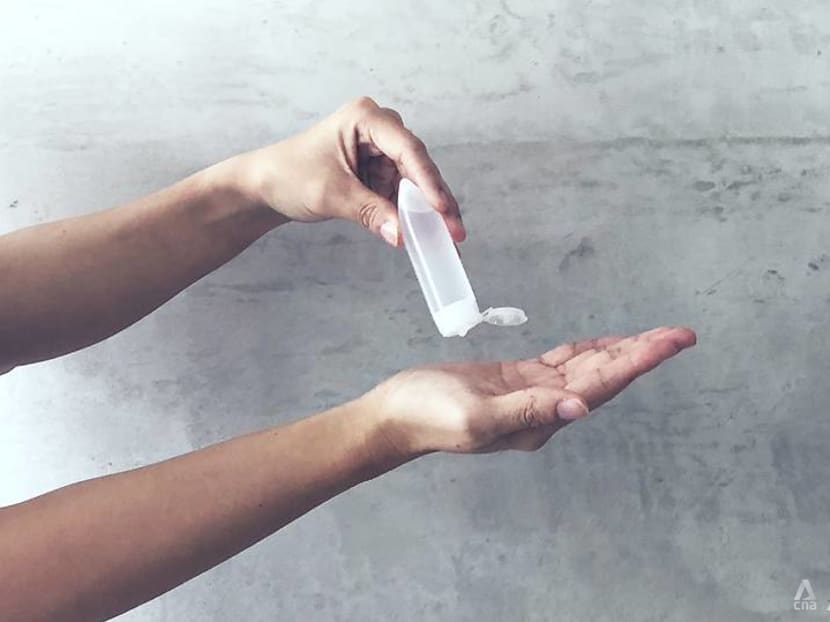Buying hand sanitisers? How to avoid wasting money on what doesn’t work
If the ingredients list water as the first component, it is likely to have less than 60 per cent alcohol – the minimum amount you need to keep safe from COVID-19.

(Photo: Jasper Loh)
By now, you’ve probably heard or read this advice ad nauseum: Washing your hands with soap and water is your best insurance against COVID-19.
This means that other forms of disinfection, including the use of hand sanitisers, should be your secondary line of defence and not your first. “Hand sanitisers should only be used if soap and water are not available,” reiterated Dr Edwin Chng, the medical director at Parkway Shenton.
READ: Do homemade hand sanitisers actually work? We ask the doctors
But head to the pharmacy these days and you’ll notice that hand sanitisers are still a scarce commodity. Which is likely the reason why many people are turning to the Internet to shop for alternative sanitising products that promise to kill “99.99 per cent” of the germs using all sorts of ingredients that range from nano technology to silver ions.
So, should you put an order in for a few boxes?
For starters, the gold standard for hand sanitisers is still at least 60 per cent alcohol, said Dr Chng. “Hand sanitisers without alcohol or lower alcohol concentrations may not work equally well for many types of germs, and merely reduce the growth of germs rather than kill them outright.”
However, "there are now many items in the market that are labelled 'hand sanitiser', but the ingredients list has water as the first ingredient", highlighted Dr Jyoti Somani, a senior consultant with National University Hospital's Division of Infectious Diseases.
"This means that the alcohol concentration will be less than 60 per cent and they would not be effective against the SARS-Co-V-2 virus, the one that causes COVID-19."
READ: Hygiene tips: What’s the best way to disinfect your phone without damaging it?
And price is not an indication of a sanitiser's efficacy either. "Just because a product is more expensive does not mean it is better than the standard cleaning agents," she said.
Also, check that the claims are “substantiated by internationally recognised, evidence-based scientific references”, said Dr Chng. If you’re not sure what these references are, Dr Somani suggested checking the National Environment Agency website for "approved cleaners which are effective".
You can also look for ingredients such as benzalkonium chloride (0.05 per cent), hydrogen peroxide isopropanol (50 per cent), isopropanol (50 per cent) and povidone-iodine (0.1 per cent to 0.5 per cent; 1 per cent is for cleaning surfaces and not your hands), said Dr Somani.





